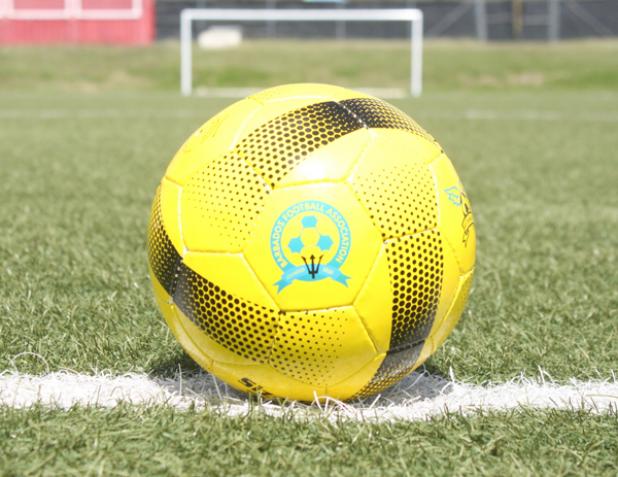
The absence of football on the island continues to have some far-reaching effects.
Football hard hit by PANDEMIC
As the island creeps closer to a year of having COVID-19 with us since the detection of the first cases back in March of 2020, the fallout in football has been felt at all levels.
With the Barbados Football Association (BFA) cutting out all operations in the contact sport, the ripple effect has touched all and sundry who are affiliated with the local fraternity.
Speaking to The Barbados Advocate recently, BFA President Randy Harris explained that the pandemic definitely had a major effect on the efforts of the senior national team, which was slated to make some international appearances last year. With qualifying games originally set for June of 2020, FIFA was forced to push games back, and may not be in a position to do so again as the World Cup Final is scheduled for 2022.
“Our national team had begun preparing in September but they have not been able to have any meaningful competitive games. We’re scheduled to play in the FIFA World Cup in March and the fact that we are unable to continue training will severely impact our performance. We’re really in a pretty hard place as far as the football is concerned at this time,” he said.
However, with the island only boasting an amateur league system and all domestic play cancelled, Harris said that he believes the effects would not be as detrimental, as several of the best players have been included in the national squad training.
“I really don’t think that there will be any significant fallout. We have had at least 60 of our players training here from September and those players are pretty active. Our coaches have been giving them a programme to follow. But until we are allowed to have football activity, we are going to be in a bind.”
Weymouth Wales Coach and former national player Renaldo Gilkes had a slightly different take on the local scene and believes that almost a year without the game could possibly deal a heavy blow to the sport.
“Football, as you know, is one of those skill-based activities and when you don’t use it, you lose it. And you have to take the safety measures of prohibiting practice sessions and scrimmages and so on which aid the football development. Our football culture and society isn’t particularly a very disciplined one, and I guess that’s because we don’t have a professional set-up so we are hardly going to find players taking the initiative to go and train on their own. Some people may be very health-conscious and decide that they don’t want to take the risk of going out in the public to be exposed to the virus,” he said.
Noting that there could very well be technical, social and physical implications due to no activity, he said that losing fitness and losing interest were among the greatest dangers for athletes.
“Football is one of those things that if you’re not constantly involved and you’re not passionate about it, you could potentially lose interest. And that is one of the reasons why guys might not actually practice because you don’t want to do it as an individual. Sometimes that interest comes from being part of a group.”
As it relates to the international scene, Gilkes, who served as National Under-17 Coach as well, said that the cancellations of international competition at all levels, and in particular the Concacaf Qualifiers for the Under-17 and Under-20 players, had many wondering what they could possibly do next to keep their dreams of playing professionally alive.
“Maybe the FA could collaborate with some of the other regional associations and possibly look at something maybe later down in the year when, and I’m being optimistic here, the virus has subsided a bit. But right now from an international perspective, the Under-17 and Under-20 age groups are tremendously affected. Especially as some of the guys in both of those divisions were going to use that competition to get video and promote themselves and expose themselves to collegiate and professional institutions.”
One of the island’s best-known players Mario Harte also weighed in on the discussion with The Barbados Advocate. Making his name known as a former national team captain and having plied his trade with the Barbados Defence Force Sports Programme, the University of the West Indies Blackbirds and more recently with Paradise, Harte said that it was hard on players not being able to train or even scrimmage.
“At some point you start to lose interest in playing, but because of the love of the game, most players will try to keep interest and hope that things will change soon. But I know of a lot of cases where my friends interest in playing has dropped. It is so hard for them even to pick up a ball and just juggle. I believe that once the restrictions are lifted that you can at least train, I think it would be a lot better.”
Having made the transition to coaching in recent years and getting in some work with the national Women’s outfit and the National Sports Council, Harte said that it was also hard on coaches.
“It is also hard from a coaching perspective because just like playing, you have to keep active to improve and keep things fresh in your mind. What I would do is go and watch coaching videos to keep refreshing my mind and go over books that I received from courses,” he explained. (MP)
